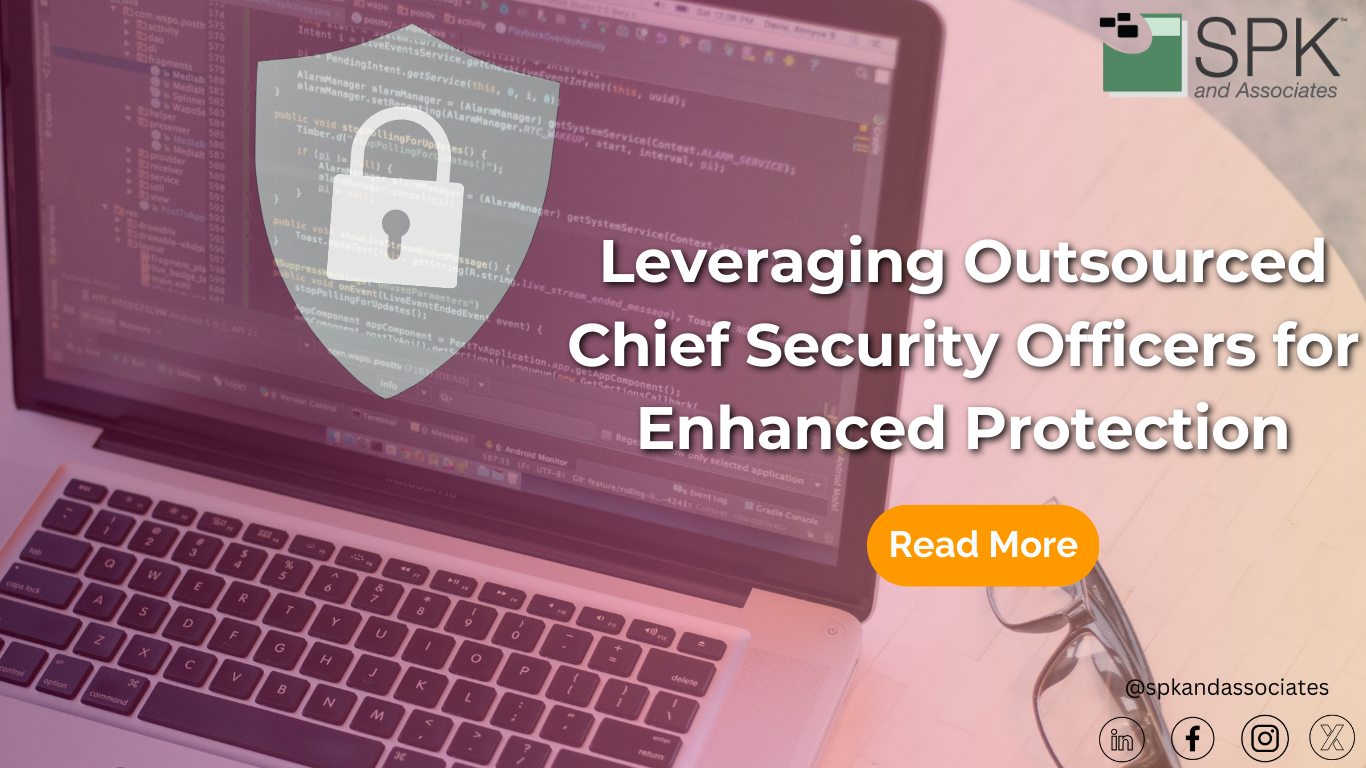Every click and keystroke holds digital value. And, for Small to Medium Enterprises (SMEs), there’s a fine balancing act between budget, expertise and agility to drive business value. Plus, with cybersecurity attacks higher than ever, the struggle to fortify digital assets is a non-negotiable plate to keep spinning. So, how can an outsourced Chief Security Officer (CSO) help you achieve your goals?
The Benefits Of An Outsourced Chief Security Officer
According to Sophos’ “State of Ransomware 2021,” the average cost of recovering from a ransomware attack now stands at a staggering $1.85 million. On top of that, Microsoft’s Security Insider reveals that 2 in 5 security leaders feel they’re at extreme risk due to cybersecurity staff shortages. If you don’t have the in-house expertise or resource capacity for a Chief Security Officer, we highly recommend outsourcing. You can read more about the threat security landscape in our previous blog post.
Cost-Effective Expertise
Operating with constrained budgets and a lean workforce makes hiring a full-time, in-house Chief Security Officer (CSO) challenging. That’s why an outsourced CSO (a.k.a. A virtual CSO) provides a flexible solution. It enables SMEs to pay for precise assistance when needed – whether it’s parental leave coverage, handling specific project tasks, or any temporary need. Essentially, outsourcing grants access to specialized expertise without the hefty commitment of hiring a full-time executive. Moreover, virtual Chief Security Officers specialize in:
- Cost-effective security solutions.
- Aligning protection measures with budget constraints without compromising effectiveness.
- Maximizing the value of cybersecurity investments.


Industry Knowledge and Specialized Expertise
Outsourced CSOs bring a wealth of industry-specific knowledge and expertise to the table. Their seasoned experience enables them to sculpt security measures with precision, addressing threats that SMEs might face and those on the peripherals of their industry. Furthermore, virtual CSOs offer a depth of expertise across various domains, including network, security, and compliance. They represent a collective knowledge base built from diverse environments. Unlike traditional CSOs limited to a single organization’s experiences, virtual CSOs provide more nuanced and effective cybersecurity measures.
Furthermore, your outsourced Chief Information Security Officer has an objective view of your business. That means they aren’t tainted by emotional attachment to “how things have always been done”. Essentially this puts them in prime position to identify weaknesses and opportunities in your security strategy too.
An Outsourced Chief Security Officer Provides Scalable Solutions and Immediate Response
Relying on in-house CSOs for scaling up in growing businesses presents challenges like budgetary constraints and internal complexities. Conversely, an outsourced CSO enables market condition agility while capitalizing on cost-effectiveness and enforcing security. Plus, virtual CSOs offer immense flexibility, allowing SMEs to adapt and scale cybersecurity efforts according to organizational needs. Additionally, outsourcing provides:
- Immediate access to expertise.
- Effective cyber risk mitigation strategies.
- Vulnerability protection.
Focus on Core Business Activities and Efficient Resource Allocation
Everyone is busy aren’t they? An extra hat to ask your internal team to wear could be stretching them too far. And, cybersecurity is not an area you want your team to be cutting corners in. So, outsourcing a CSO enables internal leadership to focus on core business activities while the external expert manages and oversees security operations. This time-efficient approach ensures the organization remains secure without compromising its primary focus. Internal teams can prioritize core business activities while the virtual CSO takes charge of cybersecurity needs. Ultimately, this will enhance overall productivity and ensure a dedicated focus on critical business functions.

Regulatory Compliance Management and Proactive Threat Mitigation
Regulatory compliance is a constant challenge for businesses, and virtual CSOs offer immediate peace of mind by seamlessly managing regulatory requirements. This proactive approach saves time and resources compared to the potentially costly and time-consuming process of ensuring compliance with an in-house CISO. Moreover, virtual CSOs leverage their networks and resources to provide SMEs with up-to-date threat intelligence, enabling proactive defense against emerging cyber threats. This proactive stance ensures the organization remains well-prepared to address emerging threats promptly, minimizing potential impacts on the business.

Software Lifecycle Management for Optimal Security
Running software beyond its end-of-life exposes SMEs to various risks, including security vulnerabilities and compliance challenges. Your outsourced CSOs can:
- Provide strategic guidance on upgrades and replacements.
- Ensure your organization’s software ecosystem remains secure and up-to-date.
This proactive approach minimizes security risks and ensures optimal security for the organization’s digital assets.
Take Action: Talk To A Trusted Virtual Chief Security Officer
Whether addressing limited resources, ensuring regulatory compliance, or seamlessly integrating security into agile development, an outsourced CSO is a versatile and valuable partner.
If you need a proven outsourced CSO for your organization, speak to SPK and Associates.







